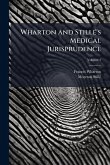"Medical Jurisprudence as it Relates to Insanity, According to the Law of England" by John Haslam offers a fascinating glimpse into the historical intersection of law and mental health. This meticulously prepared print edition explores the legal aspects of insanity in Great Britain, providing invaluable insights into the development of medical jurisprudence. Examining the legal framework surrounding insanity, Haslam's work delves into key questions concerning mental health law and its application. A crucial resource for understanding the historical context of forensic science and medical law, this book remains relevant to anyone interested in the evolution of legal and medical thought regarding mental illness. Explore the complexities of insanity as defined by English law in this enduring work, carefully restored for a new readership. A cornerstone text for those studying the history of law, social sciences, and the treatment of mental illness. This work has been selected by scholars as being culturally important, and is part of the knowledge base of civilization as we know it. This work is in the public domain in the United States of America, and possibly other nations. Within the United States, you may freely copy and distribute this work, as no entity (individual or corporate) has a copyright on the body of the work. Scholars believe, and we concur, that this work is important enough to be preserved, reproduced, and made generally available to the public. We appreciate your support of the preservation process, and thank you for being an important part of keeping this knowledge alive and relevant.
Bitte wählen Sie Ihr Anliegen aus.
Rechnungen
Retourenschein anfordern
Bestellstatus
Storno

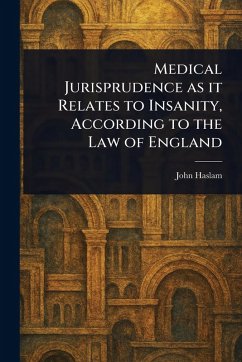

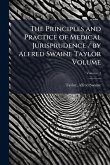
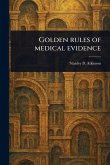
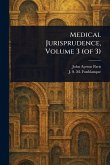
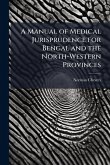
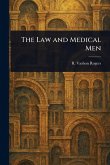
![An Essay on the Juridical History of France, so Far as It Relates to the Law of the Province of Lower-Canada [microform]: Read at a Special Meeting of An Essay on the Juridical History of France, so Far as It Relates to the Law of the Province of Lower-Canada [microform]: Read at a Special Meeting of](https://bilder.buecher.de/produkte/66/66123/66123635m.jpg)
